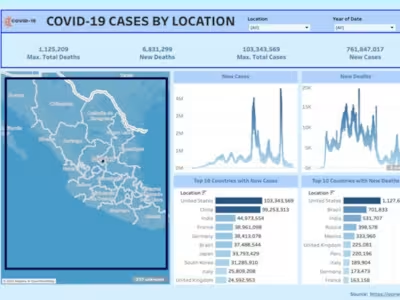Business Report: The Strategic Outlook of Nikola (NKLA)
Like this project
Posted Dec 12, 2023
I recommend BlackRock campaign against NKLA's management and decrease holdings due to inconsistency, financial struggles, and declining shareholder confidence.

The Strategic Outlook of Electric-Truck Maker Nikola (NKLA)
Report By
Business Consultant
Altaf Safi
For Institutional Shareholder
BlackRock Inc.
Problem Statement
As a business consultant for Black Rock, I was able to determine the strategic problems from the Wall Street Journal article provided by Black Rock. There are several problems Nikola is going through including the fact that Nikola had reduced its production of electric trucks in the month of June while deliveries have increased. This means demand for electric trucks had increased as there are more deliveries scheduled while supply which is the production of electric trucks had declined. The problem comes from Nikola’s shift in focus in recent months to expand in North American market, rather than continuing with its current assembly line of deliveries scheduled. Nikola has exited its joint venture with the European automaker, Iveco Group in May. During the same time in May, Nikola has paused its production at its plant in a pursuit to change its assembly line for coming up with its new models.
Nikola plans to produce hydrogen fuel cells this month of July and sell trucks with those cells later this year. As of May, the company has not produced about 140 truck delivery orders. This has increased competition and allowed for other electric vehicle makers like Tesla and Rivian Automotive to increase its delivery orders and triple production supply recently compared with the prior year when Nikola had a normal production. Additionally, another issue is that Nikola has new plans to expand its assembly line and models, it has started to struggle with high costs as it grows. For this reason, the company is trying to reduce its costs by cutting out on labor costs, meaning they are laying off about 10% of the workforce in an attempt to reduce cash expenditures to under $400 million by next year.
Moreover, while the company has been struggling financially and in growing its model line, Nikola’s Phoenix headquarters was on fire, damaging multiple electric trucks, which additionally reduced supply available to buyers. Since the company is dealing some financial problems, it is trying to issue more stock shares to raise funds but shareholders has denied it in June because the company hasn’t been able to perform well lately to meet its normal objectives and plans. The problem persists at Nikola not complying with its plan till execution and it changes focus into multiple directions lately. For instance, as its cutting costs and trying to raise funds for its expansion of model types and entry to new market, the company had sold off its subsidiary, Romeo Power, that was recently acquired in November to SG Service recently. Nikola had acquired Romeo Power, the battery making group, for the purpose to help increase the rate of production process for its electric trucks, in which it might have helped in producing greater quantities in shorter time.
In other words, earlier in the year, Nikola found that the acquisition was necessary to help expedite the production process of its electric trucks as it aimed to meet market demands and increase number of electric trucks available for sale. However, recently the company’s plans changed and they sold Romeo Power to SG Service to raise funds for its new plans, indicating the company is not consistent and reliable on its decisions. After going public in 2020, the company’s value increased when Trevor Milton was in office. Later, Milton was convicted of attempting misrepresentations of company’s growth, and he was convicted of securities fraud. Looking at the current business activities and financial downturn and falling value per share due to lack of supply and capital for expansion, are indicators that the company is not doing well and thus there may have been misrepresentations of the company’s growth because the company hasn’t been meeting its objectives accordingly promised to shareholders and is losing money.
The analysis aims to inform Black Rock on Nikola’s strategic directions on how much progress Nikola has made by looking at its performance compared to the general industry, what plans does it have, and determine if there is a long-term growth. Nikola has failed in its cost-cutting strategies and is unable to raise funds through additional stock issuance, which is indicating that the company is facing financial challenges that need to be resolved. After my analysis, I will provide recommendations on whether Black Rock should continue to increase, decrease, or maintain its holdings or investments in Nikola.
External Analysis
Nikola operates in an industry where there are several external factors that affect the company. Using the PESTLE analysis will help in determining the political, economic, social, technological, legal, and environmental factors that impact Nikola’s potential.
Political Factors
There are several governmental policies and regulations that set restrictions and compliance measures on the business activities of the electric vehicle industry. For instance, there are policies like subsidies, tax benefits, state funding for charging infrastructure, all of which that encourage the use of electric vehicles for consumers which benefits both businesses and consumers. There are also strict environmental regulations that forces businesses to reduce carbon emission and footprint, which opens opportunities and demand for zero-emissions vehicles. On a global perspective, each country will have their own trade policies and tariffs which can affect the supply chain and production costs for Nikola. Companies like Nikola can benefit from governmental incentives.
In an article published by Bloomberg, Nikola Corporation can get hydrogen fuel credits from the government, meaning if it establishes its hydrogen fuel cell trucks model and put its filling stations network in operation, then the company can get hundreds of millions of dollars a year of incentives from the Biden administration Inflation Reduction Act (Welch, 2023). The act offers an incentive of $3 per kilogram of hydrogen produced. If Nikola establishes a goal to produce 300,000 kilograms of hydrogen per day, the company could gain about $1,000,000 a day from the Federal Government according to the policy’s allowance. In the state of California, the company can gain another $1 to $2 per kilogram for dispensing hydrogen (Welch, 2023). The inflation reduction act would give the company $40,000 per hydrogen-powered truck sold and if operated in California, then the company gains an additional $288,000 per sold truck. Also, with the development of the new model, creates further complications because consumers will need hydrogen to keep trucks driving and this requires additional government approval for infrastructure and permits, which will be time consuming for building (Welch, 2023).
Nikola can face risks with its international operations including unfavorable regulations, tax and labor laws that can harm their business. For instance, some risks can increase their costs like the need to develop construction sites for hydrogen refueling network and difficulties attracting customers in new jurisdictions. The availability and expansion of charging infrastructure, particularly in the markets where Nikola operates, can affect consumer confidence and the feasibility of electric vehicles.
Other global factors can push can shift several countries to adopt zero-emissions vehicles or ICE vehicles like how several countries signed C40 Fossil-Fuel-Free Streets Declaration.
Economic Factors
Economic conditions like GDP growth rates, interest rates, and inflation can affect demand for electric vehicles (Khederian, 2023). Right now, hydrogen electric vehicles are currently facing financial obstacles when compared to traditional internal combustion engine vehicles and even battery electric vehicles. The presence of elevated interest rates can worsen these cost disparities, causing hydrogen electric vehicles to be relatively less appealing to consumers due to the potential increase in financing expenses. This can actually affect demand for Nikola’s new model (Khederian, 2023).
In a global perspective, there are three major markets that dominated electric vehicle sales in 2022, China accounted for 60% of global electric vehicles sales, Europe accounted for over 15% in 2022, United States increased 55% in 2022 (“International Energy Agency,”n.d.). This also resonates with why Nikola entered the European joint venture and exited it because there might have been a slower rise than in the United States, so it considered to expand onto North America since the sales can be greater. Additionally, the cost of raw materials like nickel used for electric vehicle batteries needed for production can fluctuate and affect the company’s production costs.
Economic conditions can increase the cost of energy used to produce hydrogen through electrolysis, it would likely lead to higher fuel expenses for their FCEV trucks, as well as increased costs for distribution, freight, delivery, and other operational expenses associated with vehicle manufacturing. NKLA may end up passing on these cost increases to customers due to their bundled lease model for FCEV trucks (“U.S. Securities and Exchange Commission,” 2021) This situation could potentially have a negative impact on their financial condition and overall business performance. Moreover, according to a New York Post, NKLA only has $123 million and $85 million in cash and restricted cash, which isn’t enough to sustain itself and expand its assembly line with new models together (Reuters, 2023). It can be said that Nikola does not have enough funds to capitalize on hydrogen trucks idea in the long term.
Social Factors
Everything around the global has become electric and social trends are affecting consumer preferences. There has been an increase in environmental concern in the recent years and a growing concern for sustainability which boosts demand for zero-emissions vehicles. However, in the case of NKLA, the world does not know anything about hydrogen based trucks and its benefits and it will most likely take several years for people to understand how much better it can be compared to a normal electric vehicle car with normal batteries. Social media statements and the misrepresentation of company growth and securities fraud had caused the company to lose its reputation on social media, brand image, and good-will. The shifting of business plans has also caused consumers to lose trust as the company does not establish its goal in its entirety.
Technological Factors
Technological advancements have an impact on the electric vehicle industry. Improvements in battery technology and vehicle features such as energy density and charging stations and enhanced driving technology can affect NKLA’s vehicle model offerings.
Legal Factors
Legal efforts like the intellectual property rights protect NKLA to safeguard its assets, technology, innovations, and competitive advantage. Also, there are several compliance related requirements and certification that electric vehicles must comply with NASDAQ and other regulatory requirements to maintain shareholder’s rights and consumers trust. NKLA is restricted to sell its vehicles to businesses only and not to direct customers, otherwise restrictions apply (“U.S. Securities and Exchange Commission,” 2021).
Environmental Factors
Climate change efforts like the Paris Climate Agreement can force all vehicle companies to reduce greenhouse gas emissions. The increasing use of renewable energy sources for charging electric vehicles creates more market opportunities.
Internal Analysis
Q1 2023 Quarter Earnings Call Findings
NKLA operates in a competitive market with other electric vehicle companies like Tesla and emerging competitors like Rivian Automotive. Compared to Tesla, NKLA is kind of new in the industry as it entered as a start-up in the beginning and continues to gain a smaller market share. NKLA was able to establish a competitive advantage by entering a new market of hydrogen fuel cell technology and adopt that technology in its electric trucks. This makes NKLA different from Tesla and other electric vehicle companies that produce battery-based electric vehicles. Moreover, based in the 1st quarter’s earnings call of 2023, NKLA’s position in the general industry shifts towards the North American market. It has also announced to sell its stake in the European joint venture with Iveco Group and focus on localized supply chains and other capital efficient approaches (Doll, 2023).
Since the company aims to reduce its costs, it also plans to transition it battery manufacturing from Cypress, California, to its Coolidge, Arizona plant. Also, the company will assemble Bosch fuel cell power modules in Coolidge, Arizona. The company believes that these changes to its strategies will help in reducing its material costs for its trucks. Furthermore, Nikola is prioritizing the development of its Class 8 hydrogen fuel cell electric truck and forming strategic partnerships for hydrogen energy infrastructure with Voltera, in which they will develop up to 50 hydrogen stations over the next five years (“Nikola Corporation,”2023).
In terms of workforce optimization, Nikola plans to reorganize its workforce and rationalize spending across all areas of the business. This includes laying off 150 employees from Nikola's European programs and 120 employees from its Phoenix, leading to its Coolidge sites to soon be affected as well from shortage of labor. However, the company will save over $50 million in cash spending annually as they do so. The company is moving out to the Arizona manufacturing facility to accommodate Nikola’s battery-electric and hydrogen fuel cell electric trucks on one assembly line. Also, in the company’s quarter 1 of 2023 report, the company indicated to have about 140 sale orders from 12 customers for its new Class 8 hydrogen fuel cell electric truck model (“Nikola Corporation,”2023).
In the first quarter of 2023, the company reported increased revenues of $11.1 million compared to $1.9 million in the same period the previous year. However, Nikola also posted a net loss of $169.1 million, which is higher than the loss of $152.9 million indicated in the same period of 2022. Also, NKLA is starting to deliver 31 battery electric trucks to dealers and achieving 33 retail sales to customers which there is some progress but not aligned with what the quantity expected to deliver (“Nikola Corporation,”2023). NKLA's core capabilities are shown in its partnership with Voltera for hydrogen refueling stations needed for its hydrogen trucks and the company’s new focus in a different market. The company’s core capabilities includes prioritizing the North American market, hydrogen fuel cell trucks, the HYLA hydrogen ecosystem, and autonomous technologies. The company’s change in focus has allowed it gain the first mover competitive advantage. NKLA aims to capture a sizable share of the commercial trucking market and build a sustainable hydrogen energy business in North America.
NKLA’s shift in strategy focus to expanding to North American market because this market is currently found to be leading in U.S energy transition with supportive federal incentives and having favorable government regulations that benefit the business like strong regulations mandating zero-emissions vehicles. The progress made in areas like hydrogen fuel cell truck development, battery electric commercialization, and manufacturing facility expansion demonstrates Nikola’s alignment with internal dynamics and its commitment to staying at the forefront of the industry.
Additionally, In the fourth quarter of 2022, Nikola reported manufacturing 133 Tre BEV trucks, which was almost twice the number produced in the previous quarter. However, the company only managed to deliver 20 of these trucks to customers (Doll, 2023). Nikola explains that during this period, it focused on making improvements to the BEV trucks based on feedback from customers. They made an improvement using its over-the-air (OTA) update system which helped in increasing the trucks' range and added the ability to charge at up to 350 kW. This appears to be fraudulent to me for keeping most of the remaining trucks produced just to make improvements (Doll, 2023).
ESG 2022 Performance
Since Black Rock has maintained its holdings in NKLA for a while and was encouraged by NKLA’s ESG efforts. In NKLA’s 2022 ESG Report, the company highlighted its performance in its ESG by showing how they were able to ship 131 zero tailpipe emission vehicles in 2022, contributing to a revenue of $273.8 million from these environmentally friendly vehicles (“Nikola Corporation,”2022).
In terms of their environmental impact, NKLA has reduced its emissions, energy consumption, water usage, and waste generation by prioritizing resource conservation and waste diversion in its manufacturing operations and adopted circular economy principles throughout their testing, validation, procurement, and manufacturing processes. The company recycled tons of cardboard and successfully recycled over 7+ tons of pre-consumer batteries. Additionally, they eliminated water withdrawal for their truck manufacturing process by utilizing renewable solar energy, with a 750 kW solar energy system installed. Also, in 2022, NKLA operated two manufacturing plants and invested $273.8 million in research and development for sustainable products. In 2022, the company had over 1500 employees in business but that number has decreased recently which is starting to contribute negatively to inflation and unemployment. The company has also contributed over $106,000 towards Phoenix Children’s hospital, 3 year committing to the American Red Cross Blood Drive, and contributed over $15,000 to the American Cancer Society (“Nikola Corporation,”2022).
New Model Plan Challenges
NKLA indicates that the new plan for producing hydrogen cell based electric vehicles will help in reduce carbon emissions from heavy-duty trucks even more that battery based electric vehicles ever did. By utilizing hydrogen fuel cells, the company aims to eliminate the use of fossil fuels and lower fuel costs, thereby reducing the environmental impact of trucking in a greater quantity and percentage. However, the development of this expensive advanced technology leads to higher cost of production which already the company is not able to sustain and cover its normal costs to cover up the new strategy or cover the costs of the new model line. Also, this challenges the company’s finances and may lead to a greater financial loss because with the extended product line, the company is also forced to build infrastructure for refueling to be compatible with their extended product line. All of this needs more capital like a new business plan. Several challenges come in this new hydrogen-based technology implementation like how the company may face difficulties of storing and transporting hydrogen. Additionally, with multiple acquisitions in the past few years, the company has not been accomplishing its acquisitions fully and is consistently selling its subsidiaries.
Risk Analysis
NKLA has a limited operating history which limits investors’ ability to evaluate the business. One risk is that all the company’s revenue comes from the sale and lease of their vehicle platforms which is still in early stages of development. The company’s revenue is based on the sale of hydrogen fuel at their planned hydrogen fueling station which is just starting to operate. The company has the risk to require more capital to manufacture their new truck models, build a plant, and spend on additional R&D expenses. Additional costs are added for building hydrogen fueling stations like maintenances and bundled leasing package. The company incurred losses since 2020, losing about $690 million in 2021 and $370 million in 2020, reflecting net losses (“U.S. Securities and Exchange Commission,”2021).
New Plan Progress
NKLA has also shown appropriate process and direction to its strategic plans especially showing how it is making progress in completing gamma hydrogen fuel cell trucks and receiving orders for hydrogen fuel cell trucks. NKLA has completed the first two out of ten gamma hydrogen fuel cell trucks, with the remaining eight that was scheduled to finish by the end of June. These gamma trucks will undergo customer pilots to refine vehicle validation and are being tested by prominent carriers such as Walmart, Linde, and AJR Trucking. In the battery electric segment, Nikola has shown progress in the commercialization of their Tre electric trucks. They produced 63 Tre trucks in the first quarter and delivered 31 to dealers (“Nikola Corporation,”2023).
Connecting NKLA Challenges to The Kazoil Case Study
In the acquisition experiences of the Kazoil case study, the company has shown how when Kazoil was sold to a Canadian company, the company started having more capital for development projects and growth within Kazakhstan. However, over time, as oil prices and economy started to drop in Kazakhstan, the company started forming partnerships with China and Russia, outside of its own geographic area to sustain its business growth and increase production. This ties a little bit to how NKLA had sold it European acquisition and planned an expansion plan in its country of origin by expanding within the Northern America as it saw potential growth and greater profits. It saw that local expansion was much more favorable than global expansion to other nations. One similar mistake that Kazoil and NKLA has done is the laying off employes to reduce costs. Something NKLA could do, would be to have a training program for employees as it plans to reorganize its workforce as Kazoil did, so the business doesn’t incur any lost of talent or operational shortage. This also shows that the acquisition has brought a good impact in Kazoil case, but NKLA failed to take advantage of its acquisition in proper means to improve its management as it only focused on improving profits and expanding production.
Recommendation
Based on the research conducted and performance analysis gathered, I believe that BlackRock should consider launching a campaign against NKLA's current management. The reason I state that is because I have noticed several areas that need to be improved in the company including poor acquisition decisions, poor governance, and ineffective cost reduction strategies. Firstly, NKLA has made a couple poor acquisitions that were not used for the business plan, as evidenced by the recent sale of its subsidiary, Romeo Power. The decision to acquire Romeo Power was made with the intention of increasing production capacity, but then selling it off indicates a lack of consistency and reliability in decision-making. BlackRock should improve its ability in maintaining due diligence and implement more consistent strategic planning in future acquisitions to ensure that they align with Nikola’s long-term goals and objectives as promised to shareholders.
Furthermore, the company has been facing financial challenges because of their poor governance, which is also causing shareholders to lose confidence in the company’s ability to sustain business growth. Nikola’s decision to issue more stock shares to raise funds, which was denied by shareholders, is an example of poor governance because the rejection shows a lack of transparency and effective communication between management and investors. BlackRock can push for greater transparency, accountability, and board oversight to ensure that the company's governance practices are in line with best practices and serve the interests of all shareholders. Also, the fraudulent former CEO of the company had misrepresented the company’s earnings and was found guilty of showing misleading growth numbers about the company, all of which contributed to poor transparency as well.
In terms of cost reduction strategies, Nikola's layoffs can cause the company to eliminate some of its best talents needed to operate the business because employees are the backbone of the business. As an institutional shareholder, BlackRock can encourage NKLA to implement more effective cost reduction strategies that do not compromise the company's ability to meet production demands and fulfill customer orders. It is important that NKLA keeps a balance between reducing costs and maintaining operational efficiency, so that there is no shortage of labor to keep the business running.
At this point, I recommend that BlackRock should decrease its holdings in NKLA. The company's inconsistent decision-making, financial struggles, and declining shareholder confidence can open door to greater risks and uncertainties. Although NKLA has shown some progress and growth in some areas, however, it still fails to meet its expected goals as it mentions and has appeared to overestimate its growth. For more than a year, the company hasn’t been performing well and is shifting directions as it may seem confused on where to increase their profits faster. This raises a concern about the company's ability to deliver sustainable long-term growth. BlackRock should reassess its investment in NKLA and consider reducing its exposure to mitigate potential losses and align its portfolio with more promising investment opportunities in the electric vehicle industry.
References
U.S. Securities and Exchange Commission. (2021). Nikola Corporation Form 10-K. Retrieved from https://www.sec.gov/Archives/edgar/data/1731289/000173128921000008/supplemental10.htm
International Energy Agency. (n.d.). Electric Vehicles. Retrieved from https://www.iea.org/fuels-and-technologies/electric-vehicles
Welch, David. (2023, March 29). Bloomberg. Nikola (NKLA) Sees Millions in Hydrogen Fuel Credits Coming from Biden's IRA. Retrieved from https://www.bloomberg.com/news/articles/2023-03-29/nikola-nkla-sees-millions-in-hydrogen-fuel-credits-coming-from-biden-s-ira
Khederian, Henry. (2023, July 6). Benzinga. What's Going On with Nikola (NKLA) Shares? Retrieved from https://www.benzinga.com/news/23/07/33138313/whats-going-on-with-nikola-nkla-shares
McKinsey & Company. (2021, September 7). Why the Automotive Future Is Electric. Retrieved from https://www.mckinsey.com/industries/automotive-and-assembly/our-insights/why-the-automotive-future-is-electric
Reuters. (2023, March 31). New York Post. Nikola Shares Hit Record Low on Plan to Raise $100M. Retrieved from https://nypost.com/2023/03/31/nikola-shares-hit-record-low-on-plan-to-raise-100m/
BloombergNEF. (2023, June 8). Electric Vehicle Fleet Set to Hit 100 Million by 2026, But Stronger Push Needed to Stay on Track for Net Zero. Retrieved from https://about.bnef.com/blog/electric-vehicle-fleet-set-to-hit-100-million-by-2026-but-stronger-push-needed-to-stay-on-track-for-net-zero/#:~:text=London%20and%20New%20York%2C%20June,latest%20annual%20Long%2DTerm%20Electric
Doll, Scooter. (2023, June 16). Electrek. Nikola Business Spending Cut Staff Optimize Zero Emission Truck Production. Retrieved from https://electrek.co/2023/06/16/nikola-business-spending-cut-staff-optimize-zero-emission-truck-production/
Gabriel Osorio-Mazzilli. (2023, May 26). InvestorPlace. 3 EV Stocks That Are Flying Under the Radar, but Not for Long. Retrieved from https://investorplace.com/2023/05/3-ev-stocks-that-are-flying-under-the-radar-but-not-for-long/
Nikola Corporation. (2023, May 9). Nikola Corporation Reports First Quarter 2023 Results. Retrieved from https://www.nikolamotor.com/press_releases/nikola-corporation-reports-first-quarter-2023-results/
Nikola Corporation. (2022). 2022 Nikola ESG Highlights. Retrieved from http://www.nikolamotor.com/wp-content/uploads/2023/06/2022_Nikola_ESG_Highlights-1.pdf
Doll, Scooter. (2023, February 23). Electrek. Nikola (NKLA) Q4 2022 Results: Deliveries, Revenues, 2023 Guidance. Retrieved from https://electrek.co/2023/02/23/nikola-nkla-q4-2022-results-deliveries-revenues-2023/Nikola Corporation. (2021). Nikola Corporation 2021 Annual Report. Retrieved from https://www.nikolamotor.com/wp-content/uploads/2022/12/2021_Annual_Report.pdf






